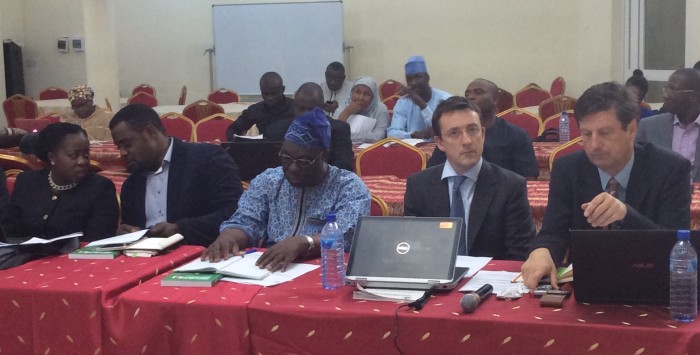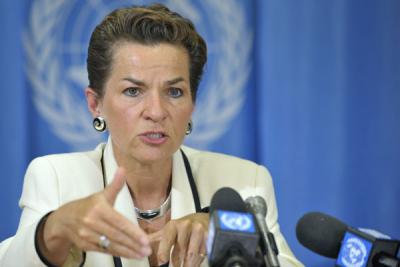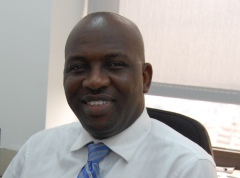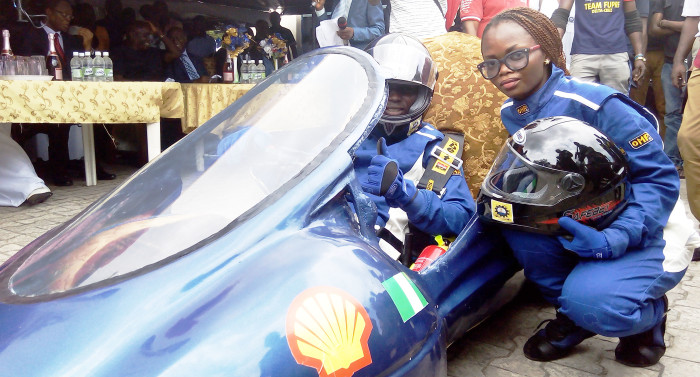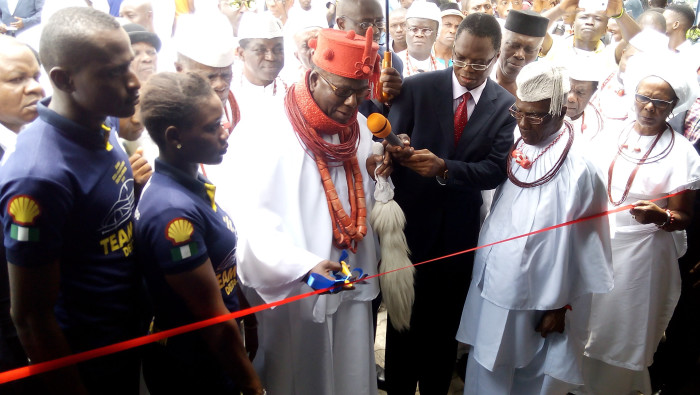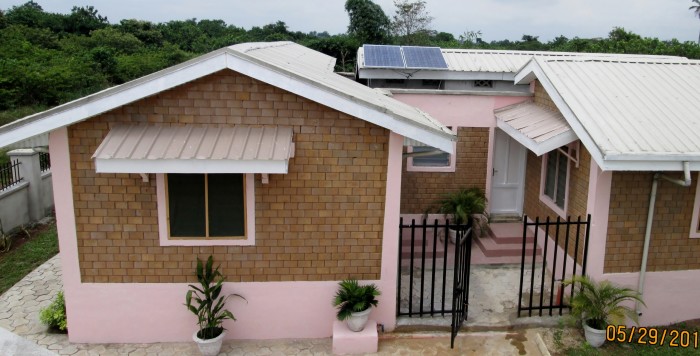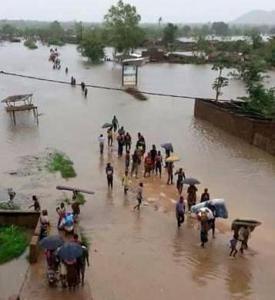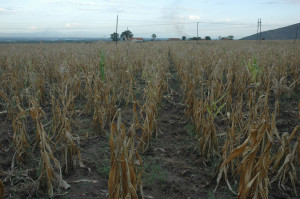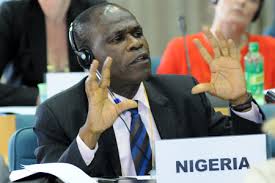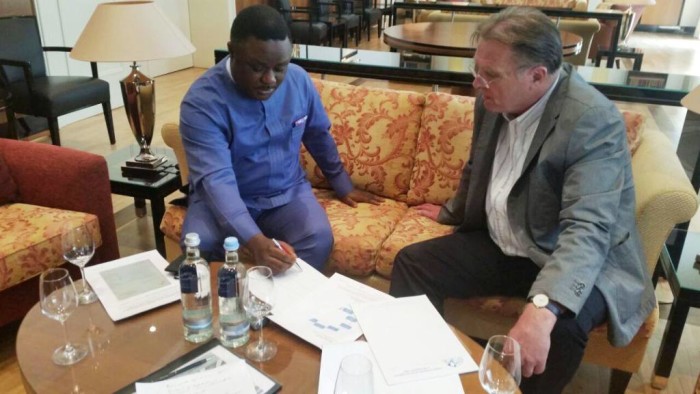Permit me to react to a news item published in the recent edition of EnviroNews under its Human Settlement section. The news item was titled: “Tough Hurdles on the Way for Aspiring NITP Fellows.”
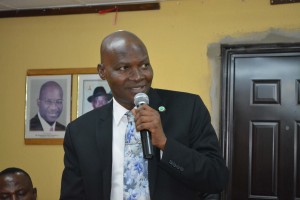
First, this writer wants to commend the initiative being currently taken by the present leadership of NITP and the elders in the profession to embark on a sweeping reform within the Institute, in order to polish its public image, improve efficiency of its members and to up job creation/marketability for the practitioners in the profession. Nothing could be more gratifying that some thinkers in the profession are beginning to realise that, in NITP, all is not well. A typical example is the issue of conferment of FELLOW on its members which, in the main, has cheapened the exalted position. Therefore, the earlier the requirement is made more stringent to ensure the quality of membership, the better.
However, the present move is good and bad news. Good news in the sense that to become a Fellow of the Institute henceforth is no more an all comers’ affairs or business as usual. It is bad news because the revelation is a self-indictment that past administrations of the Institute were weak with the compliance of the established rules in determining who is qualified to be a Fellow. If one may ask, were these criteria not in existence before? If not all of them, the key ones are similar to the ones just released. And if we juxtapose these criteria to some of the conferment made on some members not in the distant past, one begins to question the rationale behind such conferment knowing the background of the recipients and what level of contribution or value such individuals have added to the profession. With due respect, and not being judgmental, some of the so-called “Fellows” had it TOO EASY to qualify! Therefore, in essence, the Committee of College of Fellows who screened the applicants cannot be exonerated from blame for not being diligent enough in the performance their duties. The committee fell short of being stickler to the rules.
Be that as it may, methinks that the NITP is plagued with so many fundamental and lingering problems deserving urgent attention. And until we find solutions to them, our visibility and acceptance by the general public and governments at all levels in Nigeria as a desirable/ important profession, would not move beyond the status quo. Here are the home truths:
NITP publication released in 2014 titled “THE STATE OF URBAN AND REGIONAL PLANNING IN NIGERIA”, put together by a few egg-heads in the profession, aptly and brilliantly captured/catalogued many of the problems both in their lingering and emerging format. These problems range from weak legal foundation, constitutional crisis, near-absence of institutional machinery, non-compliance with rules and regulations of the profession, professional indiscipline, ineffective regulatory body, poor public perception to contemporary issues in planning.
Here are snippets from the publication excerpted verbatim for readers’ attention:
On Constitutional status of Urban and Regional Planning in Nigeria
“Under the 1979 Constitution of the Federal Republic of Nigeria, Town Planning or Urban and Regional Planning is a residual matter, in which the Federal Government has no legislative powers except in respect of the Federal Capital Territory (FCT)……Just because URP is not on the concurrent legislative list…the Supreme Court, in 2013, had to rule….that the Federal Government could not make national URP law for Nigeria and that it should restrict its legislative powers to the FCT.”(page 44).
Albeit there is a consensus of opinion on the need to put planning in the concurrent legislative list of the Constitution of the Federal Republic of Nigeria, so that the Federal Government could be involved in planning and provide the leadership role that would boost the “national priority rating of URP” in the scheme of national development, the NITP has not put up a strong lobbying at the National Assembly to seek for the proposed constitutional amendment, over two decades after the landmark judgment by the Supreme Court. This on the part of the Institute is a major set-back.
There is unassailable reason for planning to be tripartite governmental functions if feelers from other climes with similar federal structure are considered. In the United States of America, Canada, Sweden and Malaysia where federal system of government is being practiced, there are assigned roles to the Central (Federal) Government thereby widening the horizon and making the planning process mutually and beneficially participatory, not localised. Therefore, it is incumbent on the NITP to make its presence known in the circle of lobbyists at the National Assembly in order to precipitate the much- desired constitutional amendment. The apolitical stance of the NITP over the years is counterproductive because politics and planning are like Siamese twins. If we fail to woo the support of our legislators, the amendment being sought to make planning a concurrent legislative function by all levels of government in Nigeria would remain a pipe dream.
On the necessity for the adoption of State URP Laws Nationwide
“The situation on ground today is that some 50% of Nigerian states do not have current state URP laws. Many are operating with obsolete first-generation laws, while others have no basic URP laws at all.” (page 51).
If the NITP has the knowledge of this fact from its own record, the Institute would need to roll up its sleeves and embark on a national tour to appeal to those non-compliant states to enact their laws. This should be both the concern of the State Chapters and the National body of the Institute if truly; the two entities are the mouthpieces of the profession. Without such planning law in the states to guide physical development of towns and cities, conducive environment for living, working and recreation would continue to elude the citizenry much as it is evident in our present state of urbanism, where amorphous developments have become the norm in our towns and cities.
As an umbrella association with a regulatory body, the Institute has all it takes to exert compliance even if it is by legal means as a last resort, where persuasion fails. Again, a lot of politicking has to be done to curry the support of the state legislators to jump-start the process of enacting the law that would regulate urban and regional planning.
On the implementation of the provisions of URP Laws
Given the fact that some states have subsisting URP Laws and such laws prescribed for the establishment of institutions and agencies that would facilitate smooth and efficient function of URP administration, the contrary, as contained in the NITP publication was “the apparent unwillingness on the part of some states to go beyond the passage of URP laws to the actual establishment of institutions and agencies provided for in the laws….” (page 51).
This is one of the challenges on the menu of reforms the NITP has to contend with and address squarely. Of what use is any law when its provisions are not implemented by the authority? The NITP’s role in this aspect is to formally inform the state governments concerned about this advertent/inadvertent (?) omission and request that the statutory institutions/agencies are set up. The limitations of our colleagues in the public sector to push such agenda are well known, because he who pays the piper dictates the tune. There is very little they can do beyond memo writing, but when the NITP intervenes, it carries a lot of weight. The tendency is that Government would be receptive to the advice of the Institute and more often do the needful. In addition to this humble suggestion, the leadership of the Institute assisted by a few delegates can pay a visit to the Governor of each state where there is default to make the observation known and counsel the state executive on what should be done. Such move is of necessity now more than ever before.
On TOPREC/discipline/public perception of Town Planners
“….the performance of the TOPREC can be described as fair but, certainly, not outstanding. In the areas of planning education, control of practice and discipline of Town Planners, much more is expected of the regulatory body.” (page 51).
The weakness of the regulatory body is more apparent in the area of maintenance of appropriate conduct, discipline and order within the profession. “The establishment Act of the planning profession has stipulated what is expected from planners. But how well are the Nigerian planners fulfilling the professional bargain?” (page 188). It is an open secret that some unscrupulous members of the profession are not good conduct-compliant. As the “sheriff” of the profession, the TOPREC has failed to strictly enforce its disciplinary power against those members whose conduct are found wanting. If discipline is lacking in any organization, the resultant effect is lack of integrity and bad public image such organization is bound to suffer. The negative public perception of the town planning profession in Nigeria can be turned around if TOPREC reforms and purges itself of past docility and have the courage to wield the big stick against members who subject the profession to public opprobrium by their unprofessional conduct. The Nigerian Bar Association (NBA) is an exemplary study in the way the conducts of its members are scrutinized. The Association is quick to sanction its members for any proven professional misdeeds even to the point of being disrobed. The TOPREC can follow suit.
In conclusion
The sum total of this piece is that the town planning profession is faced with so many challenges, which admittedly, are to the knowledge of the NITP. The ones hereby expounded deserve urgent attention and resolution because they have been lingering for too long to the point of being our “albatross” against progress.
The constitutional amendment to include planning on the concurrent legislative list is major and very key, in order to pave the way for the enactment of a new URP law that would address the mistakes in the extant URP law of 1992. The issue of reform about the TOPREC is also of significance. If members are not compelled to abide by the rules and regulations of the profession, and sanctioned whenever they misbehave, Town Planners’ public image will continue to be battered.
Luckily enough, the NITP publication under reference has come up with series of recommendations for the way forward at improving urban and regional planning as a desirable profession in Nigeria in terms of practice, integrity, education, training, law review, administrative restructuring for effective urban management and the recognition of physical planning as a critical element of all national development planning efforts amongst other germane recommendations.
No one leadership of the NITP has the capacity to resolve all of these challenges and or implement the recommendations in one fell swoop during short term tenure, but efforts should be made by any out-going administration of the Institute to put them as the part of the “unfinished business” in the hand-over note to the in-coming administration to follow-up.
To this writer, the NITP has set an AGENDA for itself based on the check-list of recommendations/solutions proffered. The Institute does not need to re-invent the wheels, but should demonstrate the political will to walk the talk.
By Tpl. Yacoob Abiodun (Hayward, California, USA)

